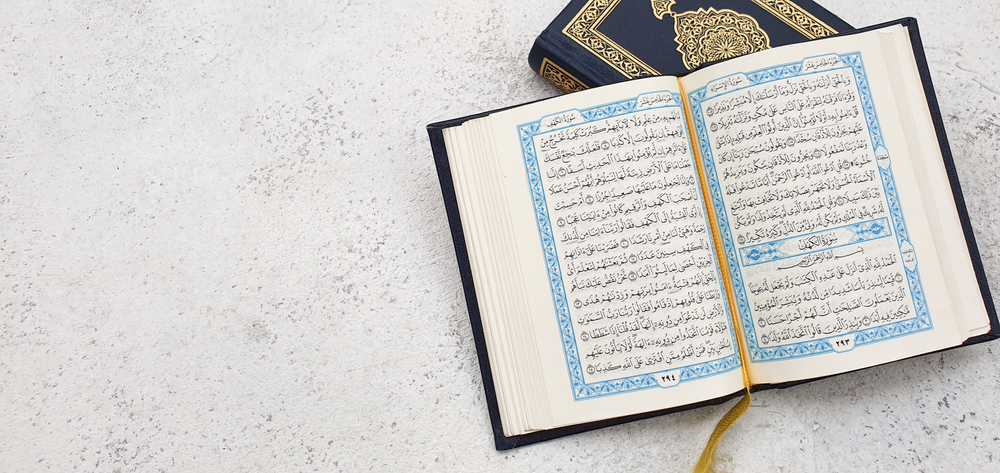Is the Prophetic Narration About His Marriage to the Jauniyya Woman Authentic?
Answered by Shaykh Yusuf Weltch
Question
I have a question regarding the Hadith about the Prophet (Allah bless him and give him peace) marrying the Jauniyya woman. First, is it true that the Prophet (Allah bless him and give him peace) married a woman, asked her to approach him, to which she blatantly responded ‘و هل تهب الملكة نفسها للسوقة. I believe another narration mentions the woman telling the Prophet (Allah bless him and give him peace), ‘اعوذ بالله منك’.
I’m finding it difficult to fathom how someone whom the Prophet (Allah bless him and give him peace) had married would say such a thing to the best of creation. This makes me question the authenticity of the Hadith, so I pray that you shed some light on the matter.
If the Hadith is authentic, why did the Prophet (Allah bless him and give him peace) marry her from the first place, and why would she say something so vile to the Prophet (Allah bless him and give him peace)?
Answer
In the Name of Allah, the Most Merciful and Compassionate
The Narration in Question
Abu Usaid (Allah be pleased with him) narrates saying, “We went out with the Prophet (may Allah bless him and give him peace) until we reached a garden named Shawt. We continued on to another two gardens… The Prophet (may Allah bless him and give him peace) said, ‘Sit here.’ He entered and a woman from Jaun was brought and she was taken to a house in the date palm gardens in the tribal area of Umayma bint Nu’man bin Sharahil… When the Prophet (may Allah bless him and give him peace) entered upon her, he said, ‘Give yourself to me.’ She said, ‘Should a princess give herself over to a shepherd?!’ He stretched out his hand to calm her down. She said, ‘I seek refuge in Allah from you!’ He said, ‘You have sought refuge is One who is great;’ then he exited towards us. He said, ‘O Abu Usayd, give her two long garments from Kattan and take her to her family.’” [Bukhari]
Authenticity of this Narration
There are multiple recensions for this narration and the above narration is authentic. However, there is some difference of opinion about the specifics within the text of this narration. [Ibn Hajar, Fath al-Bari]
Unpacking the Narration
The scholars differed, firstly, regarding who this woman was. Some said that she was not yet married to the Prophet (may Allah bless him and give him peace), and she was merely proposed to. After the contents of the narration occurred the proposal was retracted. [Ibid.]
Some said that she was married to the Prophet (may Allah bless him and give him peace), but she still had traces of the period of ignorance within her character by which she reacted as she did with rudeness, thus resulting in the separation. [Ibid.]
Yet another interpretation was that the Jauniyya woman didn’t know that he was the Prophet Muhammad (may Allah bless him and give him peace). [Ibid.]
Remember, this was before social media, so even though she believed in a man named Muhammad as the final Messenger, she wouldn’t have known what he looked like, unless she had previously met/seen him, which according to this interpretation she did not. Rather, her father had married her off, which was common then. [Ibid.]
Wisdoms
Whenever reading the Prophetic biography, we must remember that the Prophet’s decisions, actions, statements, reactions, so forth are all Divinely guided. Nothing happens, except that Allah Most High is pleased with it.
Allah Most High mentions, “Nor does he speak of his own whims. It is only a revelation sent down ˹to him.” [Quran, 53:3-4]
With this as our lens by which we see the Prophetic life, we can infer various wisdoms from this situation:
The Prophetic Humility
If we look at this situation in a modern or secular context, it is unlikely that a king being spoken to like this, would bear patiently and even send the person away with gifts.
The Messenger of Allah (may Allah bless him and give him peace) would always respond to a wrong committed against himself with kindness and forgiveness. We learn that because of this situation.
Giving a Gift When Divorce Occurs Before Consumation
Additionally, according to the interpretation that the marriage contract was made and this was a divorce, we learn certain legal rulings.
The Messenger of Allah (may Allah bless him and give him peace) sends the woman away with gifts: two garments. This is referred to in the Quran with the word ‘reasonable compensation’ (mut’a), in the following verse:
Allah Most High says, “There is no blame if you divorce women before the marriage is consummated or the dowry is settled. But give them a ˹suitable˺ compensation—the rich according to his means and the poor according to his. A reasonable compensation (mut’a) is an obligation on the good-doers.” [Quran, 2:236]
Hope this helps
Allah knows best
[Shaykh] Yusuf Weltch
Checked and Approved by Shaykh Faraz Rabbani
Shaykh Yusuf Weltch is a teacher of Arabic, Islamic law, and spirituality. After accepting Islam in 2008, he then completed four years at the Darul Uloom seminary in New York where he studied Arabic and the traditional sciences. He then traveled to Tarim, Yemen, where he stayed for three years studying in Dar Al-Mustafa under some of the greatest scholars of our time, including Habib Umar Bin Hafiz, Habib Kadhim al-Saqqaf, and Shaykh Umar al-Khatib. In Tarim, Shaykh Yusuf completed the memorization of the Qur’an and studied beliefs, legal methodology, hadith methodology, Qur’anic exegesis, Islamic history, and a number of texts on spirituality. He joined the SeekersGuidance faculty in the summer of 2019.
